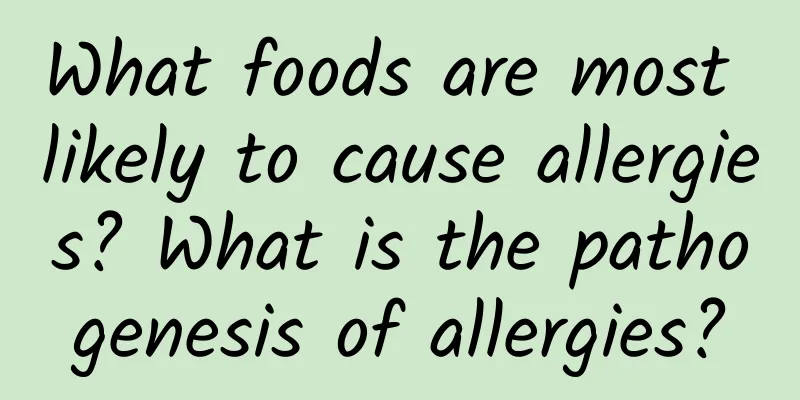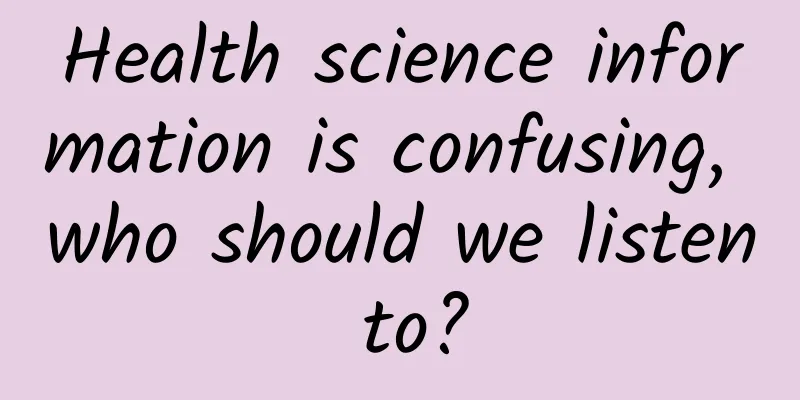What foods are most likely to cause allergies? What is the pathogenesis of allergies?

|
In recent years, more and more people have symptoms of food allergies. Experts point out that this is closely related to acquired factors, such as life stress, infection, diet structure, drugs, environmental pollution, etc. In particular, the increase in stress in modern life is an important cause of food allergies. So what are the foods that are likely to cause allergies? An article published in "Health World" in 2006 pointed out that half of allergies are caused by eggs. This conclusion was drawn by a bio-health technology company from Hong Kong[1]. They tested 96 foods most commonly eaten by Asians on 633 ordinary people aged between 8 months and 88 years old. The results showed that the most people were allergic to eggs and dairy products, such as milk and cheese. Among the allergic people, 54% and 46.6% were allergic to eggs and dairy products, respectively. 81% of the people experienced rashes and fatigue after allergies, more than 70% of the people caught a cold due to allergies, and other symptoms included flatulence and insomnia. In addition, the study found that kidney beans, bananas and sesame seeds are the foods most likely to cause allergies after eggs and dairy products. Experts point out that since food allergies are related to protein, theoretically, any food containing protein may cause allergies. Wheat, peanuts, soy sauce, nuts, fish and crustaceans are also common food allergens. So how do these foods cause allergies? Why do some people not have allergies while others do? In his 2004 book “Allergy and Antiallergic Drugs”, Professor Bian Zongpei of the Department of Dermatology at Ruijin Hospital affiliated to Shanghai Second Medical University mentioned that this is related to both genetic factors and allergic constitution[2]. In addition, the occurrence of allergic reactions also involves a process of repeated contact. For example, when a person with an allergic constitution comes into contact with the allergen antigen A for the first time, antibodies corresponding to the antigen will be produced in his body. This process is called sensitization. After sensitization, when he comes into contact with the A substance again, the human body will have an allergic reaction. The sensitization process can be fast or slow. For example, some people will have an allergic reaction after the second contact, while others will have an allergic reaction after multiple contacts. However, there are also very few people who will have an allergic reaction after the first contact. This is because cross-sensitization occurs in this process. Although the substances are different, the different substances contain the same antigenic structure that has been contacted before. Due to the allergic reaction occurring in the body, mast cells will rupture and release the true mediators mainly composed of histamine originally present in the mast cells, thereby triggering a series of pathological changes such as capillary dilation, increased vascular permeability, smooth muscle contraction, increased respiratory secretion and decreased blood pressure, causing symptoms such as skin erythema, wheals, asthma, abdominal pain and even shock. The symptoms of allergic reactions can be mild or severe. What foods a person is allergic to and what symptoms occur after the allergy have a lot to do with their individual constitution. Although the foods mentioned above are more likely to cause allergic reactions, you don't need to be overly nervous about them in life. The author of "Health World" mentioned that once food allergies occur in life, the most important thing is to find out what the allergens are. In addition, everyone must not panic, and must go to the hospital for diagnosis and treatment as soon as possible. Long-term delay may cause chronic degenerative diseases such as arthritis, depression, hypertension, dementia, diabetes, cancer, etc., and women are more likely to suffer from long-term infertility. References: [1] Tianshi. Which foods are most likely to cause allergies? [J]. Health World: Version B, 2006. [2] Bian Zongpei. Allergy and antiallergic drugs[J]. Chinese Pharmacy, 2004(5):88-90. |
>>: How can someone dare to say “I know this” when I made it up?!
Recommend
Can polycystic ovary syndrome lead to pregnancy?
For female friends who are preparing to conceive,...
What to do if you have nodules on your breast during physical examination
We do a lot of physical examinations in our lives...
How long does it take to give birth naturally?
Childbirth is a relatively painful process for wo...
The importance of sex life to breast
Breasts are also a sensitive sexual organ for wom...
What is the cause of dysmenorrhea pain that causes vomiting?
Every woman is familiar with menstruation. After ...
35 weeks pregnant, stomach pain like menstrual pain, what is going on
The 35th week of pregnancy means that the woman h...
Pregnancy signs of labor
Pregnant mothers are very concerned about the due...
What should women eat during menstruation?
In life, many girls like to eat some snacks in th...
Symptoms of cervical adhesions
Many female friends do not know the cause or symp...
My period suddenly stopped coming.
Regular menstruation in adult women is a sign of ...
Side effects of silver ion sterilization
As we all know, silver ions are a common bacteric...
Is it necessary to get a rabies vaccine after being scratched or bitten by a cat or dog?
Author: Tang Qin, Deputy Secretary-General of the...
How to care for the incision after gynecological surgery
Medically speaking, natural birth is more benefic...
How to check for high luteinizing hormone
High levels of luteinizing hormone are caused by ...
Causes of amenorrhea after 50 days without embryo
There are many women who still haven't seen t...









